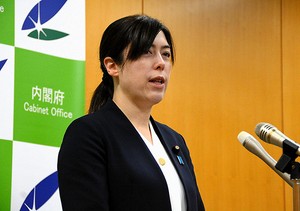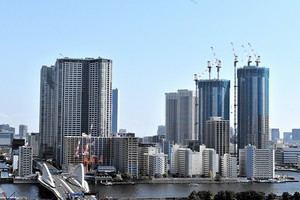THE ASAHI SHIMBUN
March 18, 2024 at 16:23 JST
All smoking rooms were abolished on the Tokaido, Sanyo and Kyushu Shinkansen lines on March 16, meaning that smoking is no longer allowed on any bullet train nationwide.
Smoking had already been banned on the Nagano (Hokuriku), Tohoku, Joetsu, Akita and Yamagata Shinkansen lines after the Health Promotion Law, which requires companies to prevent secondhand smoking, took effect in 2003.
On the Tokaido and Sanyo Shinkansen lines, all seats on the N700 series bullet trains have been nonsmoking since their introduction in 2007, as on a subsequent model. But smoking rooms outside the seating areas allowed passengers to take a puff while onboard.
However, those closed-off smoking rooms were abolished on March 16 when Japan Railway companies revised their timetables.
Some smokers have complained about the removal, saying that smokers helped pay off the debt accumulated by Japanese National Railways, a state-owned enterprise that was privatized into Japan Railway companies in 1987.
The special tobacco surtax, one of the four types of taxes levied on cigarettes, was created in October 1998 to repay the debts of the JNR and the government’s national forestry operations.
A transport ministry bureaucrat said one Diet member, a smoker, recently criticized Japan Railway companies for their decision to do away with Shinkansen smoking rooms, pointing out that smokers shouldered part of the JNR debt.
On the social media platform X, a poster said that smokers have gotten a “raw deal” for helping repay the JNR debt with the special tobacco surtax.
Smokers pay 16.4 yen ($0.11) per pack, or 0.82 yen per cigarette, in the special tobacco surtax.
The levy brought in 112.2 billion yen in revenue in fiscal 2020.
The JNR debt has fallen to 15 trillion yen, down from 28 trillion yen when the state-owned enterprise was disbanded.
A senior Japan Railway official said the group has never forgotten the fact that smokers have been helping pay off the JNR debt.
The official said the growing health consciousness and declining smoking rates among the public are the primary reasons for the complete ban on smoking in Shinkansen trains.
“Because we are required to prevent secondhand smoke, the decision was unavoidable if we put our customers first,” the official said.
Japan Railway companies said they will stock water and other emergency items in the former smoking areas.
However, smoking sections remain available at all 17 stations along the Tokaido Shinkansen Line, and Central Japan Railway Co. said it has no plans to get rid of them.
The locations of these smoking sections are shown on the company website.
(This article was written by Eishi Kado and Ayateru Hosozawa.)




















A peek through the music industry’s curtain at the producers who harnessed social media to help their idols go global.
A series based on diplomatic documents declassified by Japan’s Foreign Ministry
Here is a collection of first-hand accounts by “hibakusha” atomic bomb survivors.
Cooking experts, chefs and others involved in the field of food introduce their special recipes intertwined with their paths in life.
A series about Japanese-Americans and their memories of World War II